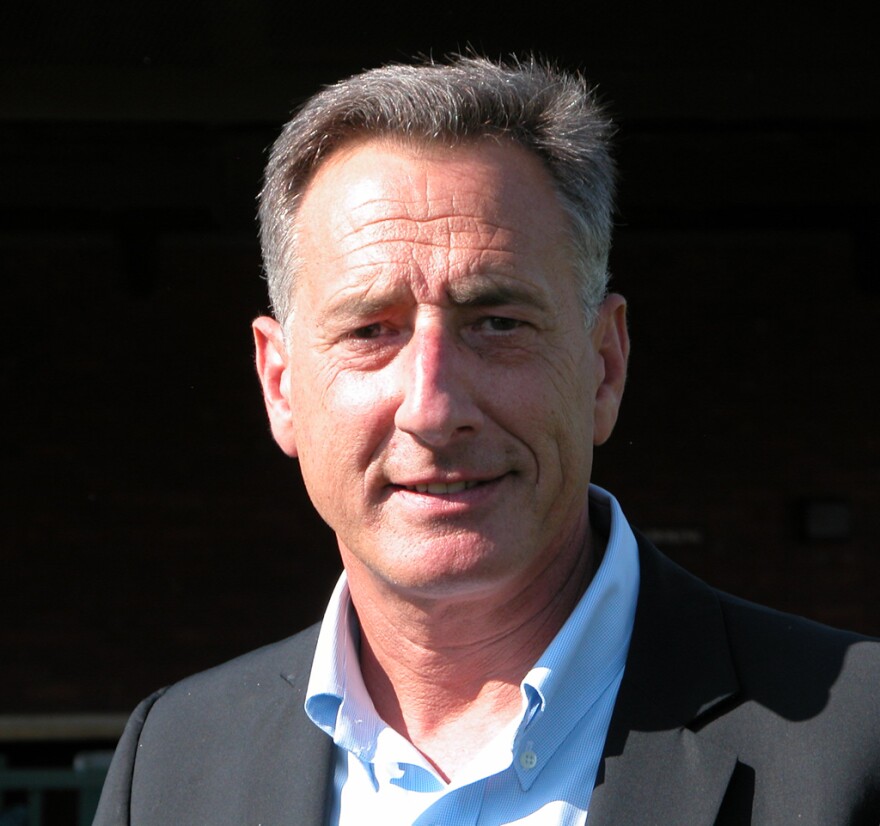Vermont Governor Peter Shumlin, who narrowly survived his reelection bid last November, announced Monday at the Statehouse that he will not seek re-election to a fourth two-year-term. As WAMC North Country Bureau Chief Pat Bradley reports, the state’s political class is now feverishly looking ahead to an open race in 2016.
Governor Shumlin said he plans to return to his hometown of Putney and the family travel business. He claimed his decision had nothing to do with his political fortunes. But his popularity had been waning and took a nose dive in late fall when he announced he would no longer pursue his signature issue – single-payer health care. On election day, he did not receive more than 50 percent of the vote, throwing the final decision to the legislature, which ultimately returned him to Montpelier.
Shumlin, a Democrat, had drawn significant support from the state’s third major party – the Progressives. Representative Chris Pearson, a Chittenden County Progressive, says many were ready for a change in leadership and Shumlin’s single-payer decision fueled their abandonment. “That was the final straw. I think if you look at his priorities a number of years ago which was to cut the earned income tax credit, our most successful anti-poverty program, that was a real wake-up call to progressives around the state who said ‘hey, this is not necessarily an ally of ours.’ But there was always that hope that health care reform would bring us together and be a very important and lasting part of Shumlin’s legacy that Progressives were enthusiastic about. When he abandoned that, and the way he went about abandoning his push to single-payer was so bizarre and particularly damaging and unnecessarily negative, that was the final straw for the progressives no question about it.”
While the governor will be a lame duck for 18 months, Vermont Public Interest Research Group Executive Director Paul Burns expects to advance issues that Shumlin wants to complete. “He and his administration has done a great deal to promote the development of renewable energy. But there is a lot more that could be done to grapple with the problem of climate change. Certainly in the area of health care reform there’s no doubt that’s the biggest disappointment of his administration. But it doesn’t mean that there has been no positive reform or no opportunity for further reform. I think that we will continue to work with him to try to do what we can to control costs, albeit in a less ambitious way.”
Shumlin's decision not to seek reelection is giving an early boost to the 2016 campaign. Middlebury College Political Science Professor Eric Davis told WAMC on Monday that he expects a number of candidates to consider a run. “The Lieutenant Governor has told reporters over the last few weeks that he was seriously considering running for governor. Now that it’s an open seat I think that makes it more likely that he will run for governor. If Scott enters the race he’d be able pretty much to clear the Republican field. The Democratic party gets more complicated. The leading candidate would be House Speaker Shap Smith. But I don’t know if Smith decides to enter the race whether he could avoid having a contested democratic primary. Doug Racine and Matt Dunne, who’ve run for the office before, might be interested in coming back. Chittenden County State’s Attorney T.J. Donovan has statewide ambitions. But he may be interested more in Attorney General. And then finally the Progressives need to decide whether they’re going to put up a candidate or not.”
Progressive Pearson believes it’s too early for the party to determine if it will field a candidate. “We’re the most successful third party in the country. The dynamics that will come together and create the fabric that is the 2016 race for governor, people can barely imagine at this point.”
Vermont and New Hampshire are the only states with two-year gubernatorial terms.




